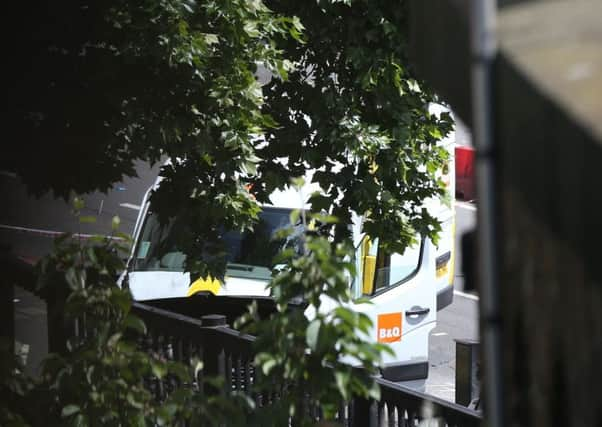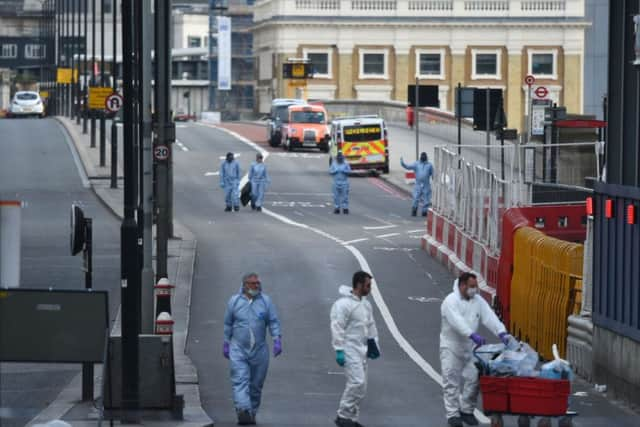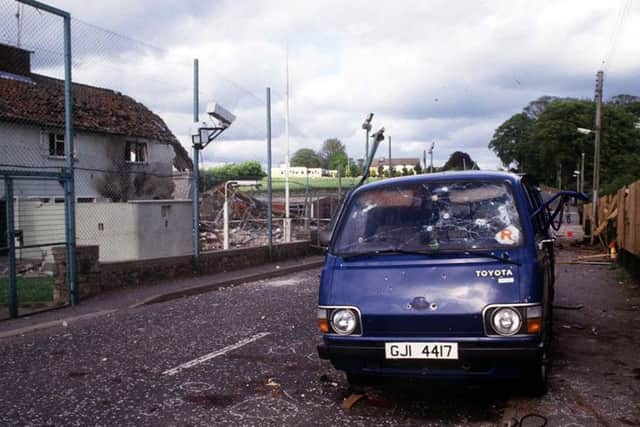Ben Lowry: We need to hear much more from British Muslim leaders about the problem of Islamic extremism


I would not have expected anything else.
Two things are happening: people are becoming more used to the terrorist attacks and they also perhaps have an intuitive sense of how unlikely it is to be killed in one.
There are no verified figures yet for the number of road deaths in the UK this year, but based on recent averages there are likely to have been more than 700 fatalities since January.


Some 34 people have been killed by Islamic terrorists.
Advertisement
Hide AdAdvertisement
Hide AdI do not write that to minimise in any way the horror and the suffering of victims but merely to explain why people can and must go on.
Campaigning in the general election stopped for too long after the Manchester atrocity.
Having said all that, there is clearly a symbolic difference between a road death, which is almost never intentional and so is impossible to predict, and a calculated terrorist attack.


Random terror attacks are also almost impossible to predict, but there are long-term things we can do.
Advertisement
Hide AdAdvertisement
Hide AdThe first is to fund lavishly our intelligence services, who are a key defence against plots.
The second is to call Islamic extremism bluntly for what it is, and to resist those voices who try to equate it with Islamophobia, or blame it on such.
As Theresa May said: “There is – to be frank – far too much tolerance of extremism in our country.”


We need to hear much more from British Muslim leaders on this topic. The respected BBC Radio Four news programme Today commissioned a poll after the 2015 Charlie Hebdo attacks in Paris which found that 27% of UK Muslims had some sympathy with the motives behind the massacre.
Advertisement
Hide AdAdvertisement
Hide AdHaving some sympathy with the motives behind the attack is not the same as outright support for it, but it is nonetheless an alarming indication of attitudes to extremism among a large minority of British Muslims.
As a nation we have been tip-toeing round these sorts of statistics for years.
Meanwhile, Jeremy Corbyn’s near inability after the Bataclan concert attacks (also in Paris, later in 2015) to say that police should shoot to kill terrorists in such a situation looks even sillier than it did then.


Almost everyone will be rejoicing at the speed of the police response on Saturday night in London.
Advertisement
Hide AdAdvertisement
Hide AdIt brings into focus the scandal of so much scrutiny now falling on security force responses to Troubles terror in Northern Ireland, and so little on paramilitaries.
Yet legacy has barely featured as an issue in our local election campaigning.
It is astonishing to think that two legal actions are before the Northern Ireland courts in relation to the clearly legitimate 1987 SAS Loughgall killings of eight IRA men, one a private action against the security forces and the other a bid to push ahead with a legacy inquest on the case.
There must be a government audit of the amount of legal aid spent funding such actions against the state.
Advertisement
Hide AdAdvertisement
Hide AdWatch out this week for the final part in an important series of essays in this newspaper by Neil Faris, a Belfast lawyer who has been querying whether we are, as often told, in fact legally required to hold separate legacy inquests into Troubles deaths of people at the hands of the state .
It gives such deaths a special level of scrutiny, which is, as Mr Faris implies, an injustice to the much larger pool of victims of terrorism.
The imbalance is all the more problematic given that (as this newspaper revealed) at least 35, and up to 41, of the 94 inquest dead were terrorists.
• Ben Lowry (@BenLowry2) is News Letter deputy editor